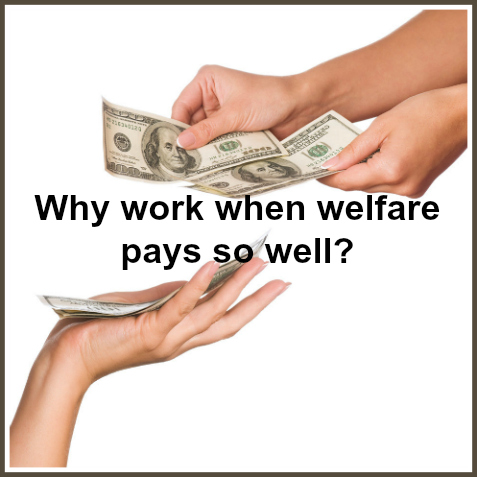Should I go to work or should I go on welfare? If you run the numbers, the decision isn’t as easy as you might think. A new study by the Cato Institute discovered that welfare pays more than a minimum-wage job in 35 states. Welfare in 13 of those states pays more than $15 an hour. There isn’t a much incentive for Americans to take an entry-level job when welfare pays more than work.
The Federal government funds 126 separate programs that are aimed at helping low-income citizens. Of them, 72 provide either cash or in-kind benefits to individuals. While it is true that no individual or family gets benefits from all 72 programs, they still benefit from a welfare society that provides more in benefits than most people realize.
Michael Tanner of the Cato Institute in a recent column put it bluntly. “Here’s an offer for you: $38,004 per year, tax free. No work required. Apply at your local welfare office.” He argues that if Congress and state legislatures are serious about reducing welfare dependence and rewarding work, they need to change some of the benefit levels and eligibility requirements.
Michael Tanner also says “there is no evidence that people on welfare are lazy.” But he also adds “they are not stupid.” If you pay more for welfare than work, it is easy to guess what they will do. Why work when welfare pays so well?
I should also point out that some have criticized the study because it “lumps together” a set of safety-net programs. And it is not true that “all poor families in which the parents aren’t working receive all these benefits.” Nevertheless, the study illustrates how generous welfare benefits undercut independence and a work ethic.
Americans support welfare as a way of providing a hand up. They just don’t want it to be a handout and become a way of life.
 Listen Online
Listen Online Watch Online
Watch Online Find a Station in Your Area
Find a Station in Your Area











 Listen Now
Listen Now Watch Online
Watch Online
